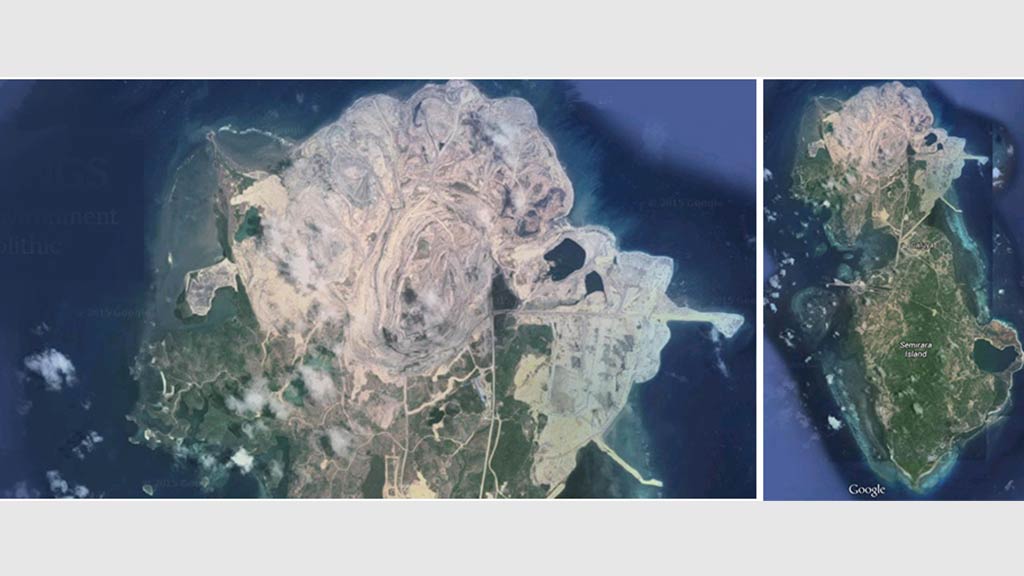After the unfortunate July 17 incident at the DMCI-owned Semirara coal mining site in Antique, Google Earth screenshots of Semirara Island in Caluya, Antique started spreading online. This led the secretariat of the PMPI to check ten other large-scale mining sites in the Philippines over Google Earth and these are what we saw:
1) Marinduque island
[[IMAGE HERE]]
Mining companies involved: Marcopper, Placer Dome, Barrick Gold
Minerals: Gold and Copper
Significance: It is the site of the Marcopper Mining Disaster that happened on March 24, 1996: the worst mining disaster in the history of the Philippines.
2) Padcal, Benguet
[[IMAGE HERE]]
Mining companies involved: Philex Mining Corporation
Minerals: Gold and Copper
Significance: On Aug. 1, 2012, a tailings dam of Philex in Padcal spilled about 20 million tons of toxic mine wastes into the tributaries of Agno river. Balog creek also flows to San Roque dam, where many communities depend on.
If Marinduque hosts the worst mining disaster, this one is the biggest.
3) Manicani Island, Eastern Samar
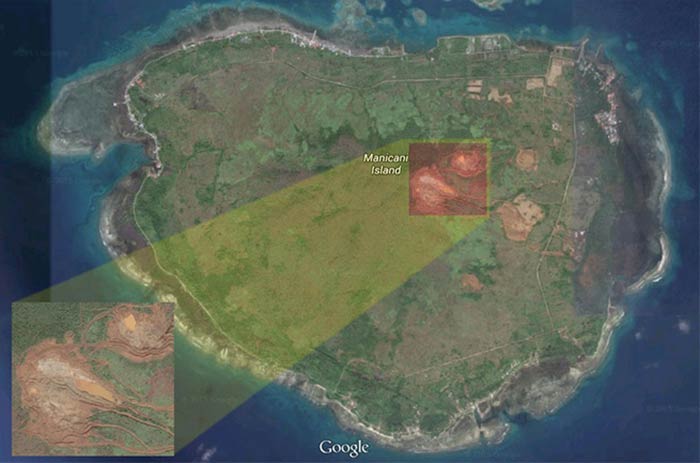
Mining companies involved: Hinatuan Mining Corporation, Nickel Asia Corporation
Minerals: Nickel
Significance: Manicani island is one of the first areas ravaged by super typhoon Yolanda (Haiyan) and is considered as a Protected Area by virtue of the Presidential Proclamation 469.
The islanders stand against the harmful effects of mining in their island.
4) Sta. Cruz, Zambales
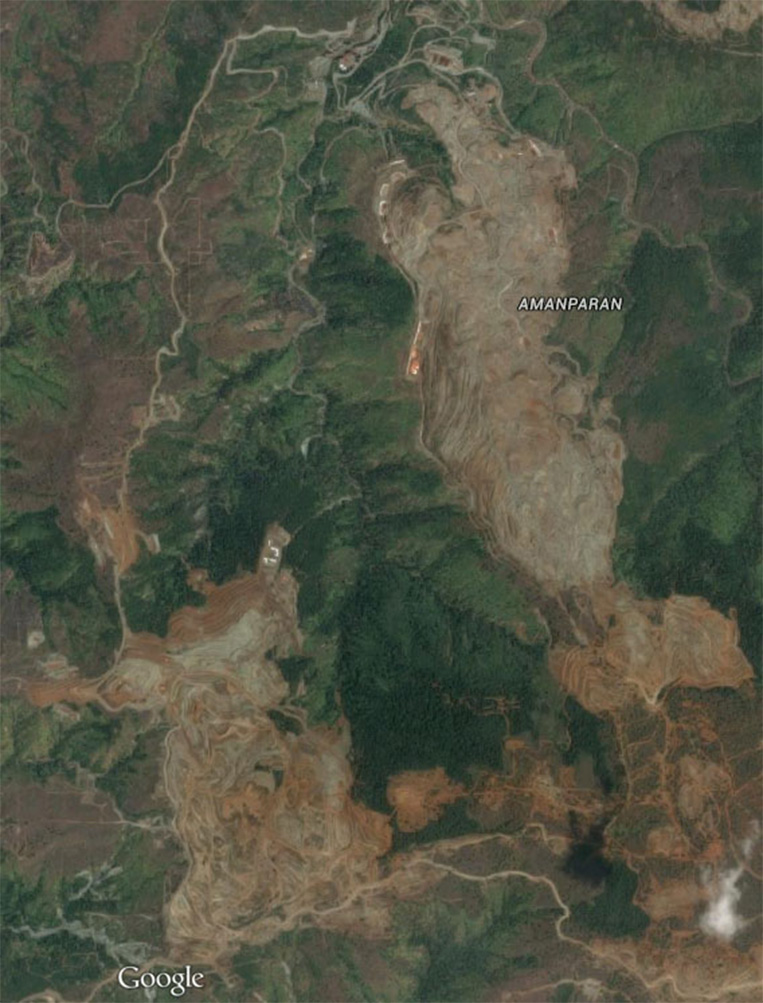
Mining companies involved: Eramen Minerals, Benguet Nickel, LNL, Zambales Diversified, DMCI
Minerals: Nickel
Significance: All the main large-scale mining companies in Sta. Cruz are suspended by the Mines and Geosciences Bureau for violations of environmental laws and policies.
Just like the islanders of Manicani, people from Zambales protest the destruction of this mining operation to the environment.
5) Toledo City, Cebu
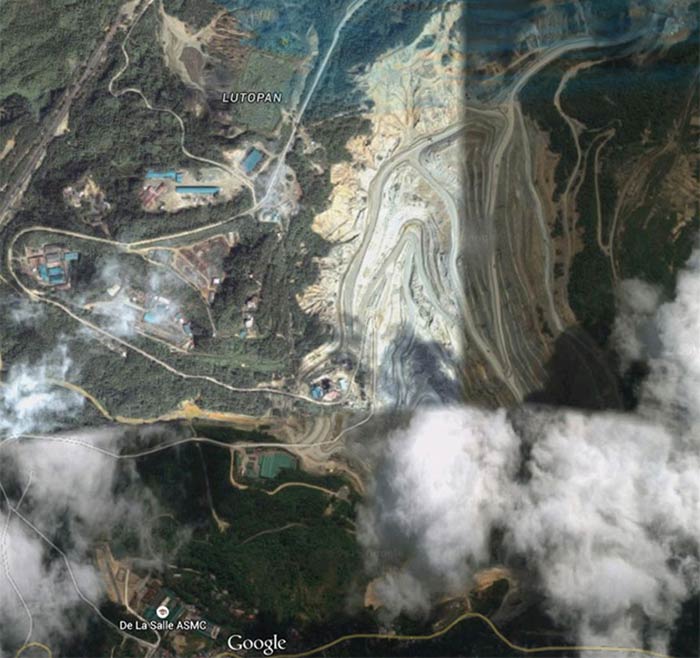
Mining companies involved: Carmen Copper, DMCI, Atlas Consolidated
Minerals: Gold and Copper
6) Cauayan and Sipalay, Negros Oriental
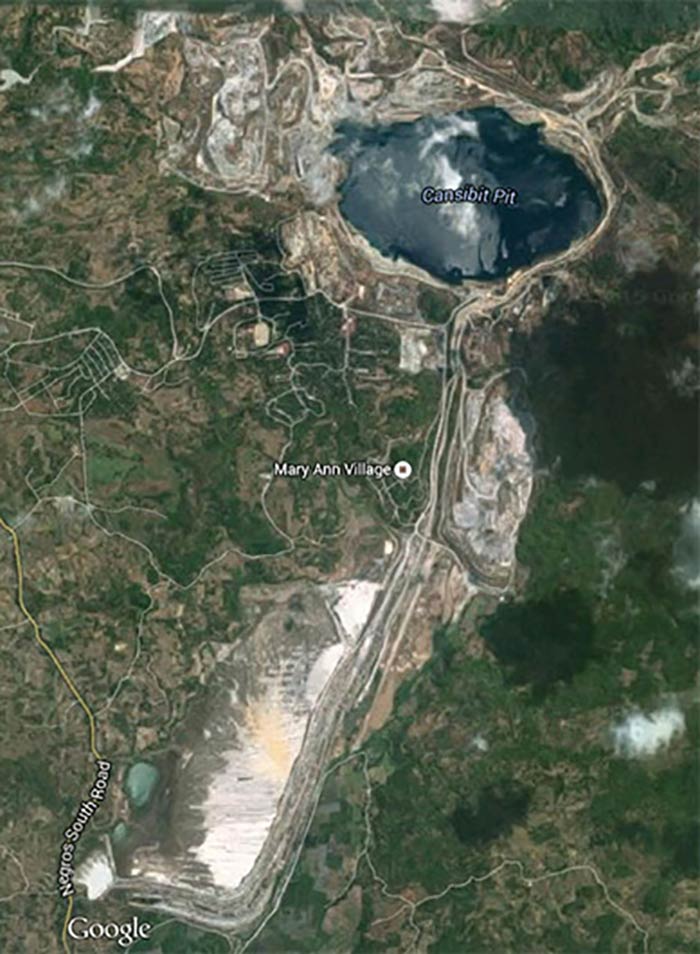
Mining companies involved: Maricalum Mining Corporation
Minerals: Gold and Copper
7) Claver, Surigao del Norte
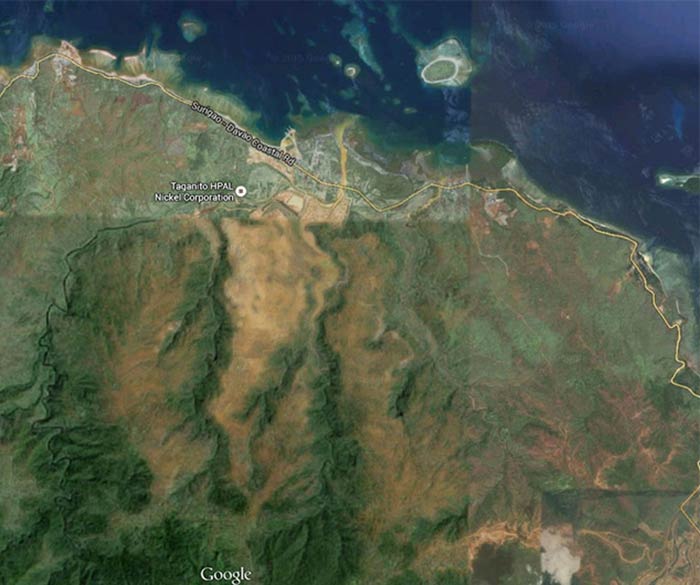
Mining companies involved: Taganito Mining Corporation, Nickel Asia Corporation
Minerals: Nickel
Significance: Taganito is the site of the so-called “red mountain” and “chocolate rivers.” A mountain fully deforested by mining and logging operations, and rivers thorougly laden with mine waste. The mining sites in these areas are large enough to contain a whole city.
Visit this link to know more about the struggle of Taganito.
8) Mt. Canatuan, Siocon, Zamboanga del Norte
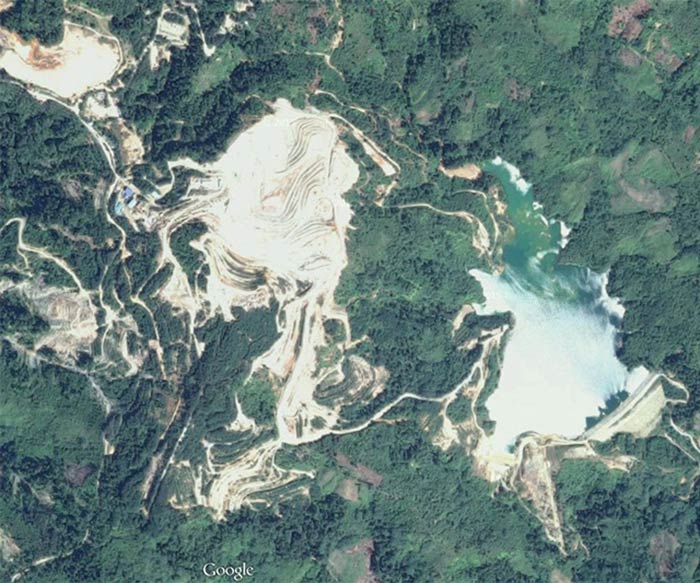
Mining companies involved: TVI Resource Development
Minerals: Copper and Zinc
Significance: Mount Canatuan is considered as a sacred place in the culture of the Subanons.
Subanons, an indigenous group whose name literally means river people, lived in the mountain since the 17th century. The mountain is gnawed through by the extraction of minerals.
9) Rapu-Rapu island, Albay
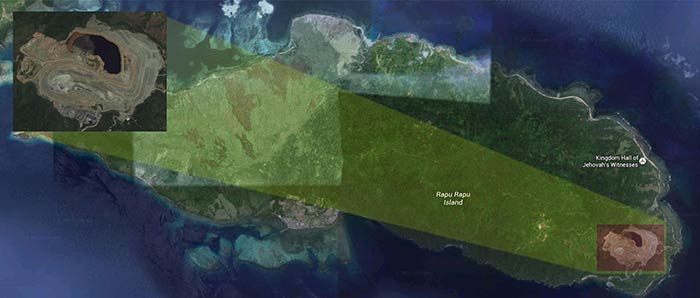
Mining companies involved: Rapu-Rapu Minerals Processing, La Fayette Mining
Minerals: Gold and Copper
Significance: The island is situated in an area in the Bicol Region, which is frequented by rare sea turtles and whale sharks locally known as “butanding.”
Join their struggle by reading more here.
10) Homonhon island, Guiuan, Eastern Samar
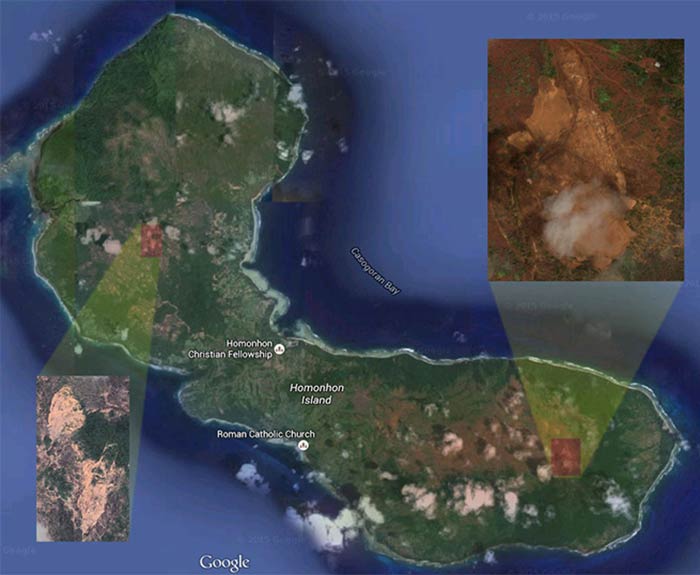
Mining companies involved: Mt. Sinai Exploration, Cambayas Mining, Emir Mining
Minerals: Chromite
Significance: Homonhon island, in historic accounts, is the site of Ferdinand Magellan’s first landing in Asia in March 1521.
